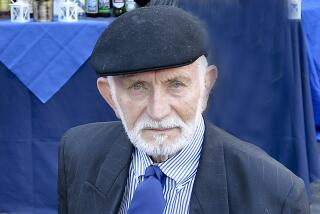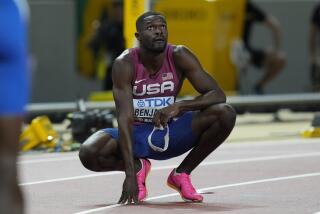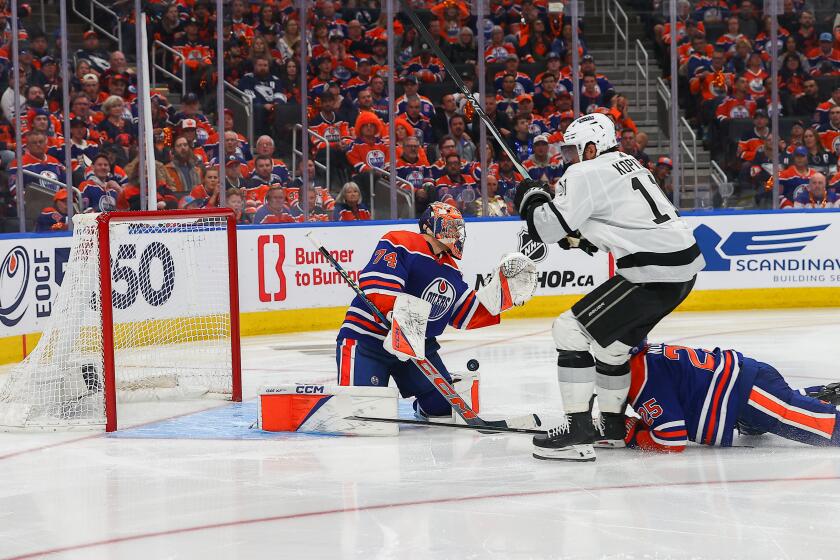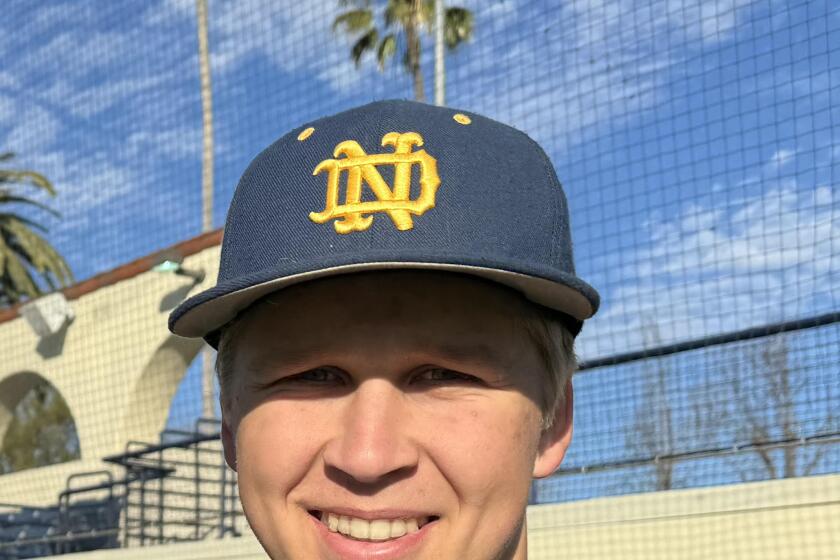Wayne Collett dies at 60; UCLA sprinter won silver medal at ’72 Olympics
Wayne Collett, a UCLA sprinter who won the silver medal in the 400 meters at the 1972 Munich Olympics but then was banished from the Games for failing to stand at attention on the medals platform, has died. He was 60.
Collett died Wednesday at St. Vincent Medical Center in Los Angeles after battling cancer, UCLA spokesman Marc Dellins said.
At UCLA, where Collett competed from 1968 to 1971, he excelled at the quarter-mile, relay and intermediate hurdle events and became a favorite of longtime Bruin track coach Jim Bush.
“I coached and trained athletes for 56 years, and I would rate Wayne Collett the greatest athlete I ever worked with,” Bush said in an interview Wednesday.
In 1972, Collett won the 400 meters at the U.S. Olympic Trials in Eugene, Ore., in 44.1 seconds, then the fastest time recorded at sea level. (The world record was held by Lee Evans, who ran 43.86 in 1968 at the high-altitude Mexico City Olympics.)
Collett and his UCLA teammate John Smith, who finished second at the trials, were favored to go 1-2 in Munich.
The 400-meter final came after the shocking terrorist attack on the Olympic village that left 11 members of the Israeli delegation dead. Yet the Games continued.
Eighty meters into the final, Smith pulled up with an injured leg but Collett, apparently distracted, was passed by another U.S. teammate, Vince Matthews.
Matthews won the gold in 44.66 seconds, Collett the silver at 44.80 and Julius Sang of Kenya the bronze.
On the medals platform, Matthews and Collett slouched casually and chatted during the playing of the “Star-Spangled Banner,” breaking with Olympic tradition that calls for rapt attention. The stadium crowd booed the athletes.
International Olympic Committee officials were furious over what they perceived to be a lack of respect and compared the incident to a medals ceremony at the ’68 Games in which U.S. sprinters Tommie Smith and John Carlos raised gloved fists to protest racial discrimination at home.
The IOC swiftly banned Matthews and Collett from the rest of the Games, likely costing them medals in the 4x400-meter relay.
“For maybe six or seven years, I’ve stood at attention while the anthem has been played, but I just can’t do it with a clear conscience anymore the way things are in our country,” Collett said soon afterward in an interview with San Francisco radio reporter Sam Skinner.
“There are a lot of things wrong, and I think maybe the white establishment has too casual an attitude toward the blacks of America. They’re not concerned unless we make a little noise and embarrass them.”
The Games were his last international competition.
Collett, who was born Oct. 20, 1949, in Los Angeles, returned to the Southland to get married and go to graduate school.
He earned his bachelor’s degree in political science in 1971, and returned to UCLA for a master’s in business administration and a law degree.
Collett practiced law and later worked in real estate and mortgage banking.
Survivors include his wife of 37 years, Los Angeles County Superior Court Judge Emily A. Stevens; two sons, Aaron and Wayne II; and his mother, Ruth.
Asked 30 years later about the Olympic incident, Collett told a Times reporter that he was not being unpatriotic on the medals stand.
“I love America,” he said in 2002. “I just don’t think it’s lived up to its promise. I’m not anti-American at all. To suggest otherwise is to not understand the struggle of blacks in America at the time.”
More to Read
Get our high school sports newsletter
Prep Rally is devoted to the SoCal high school sports experience, bringing you scores, stories and a behind-the-scenes look at what makes prep sports so popular.
You may occasionally receive promotional content from the Los Angeles Times.






